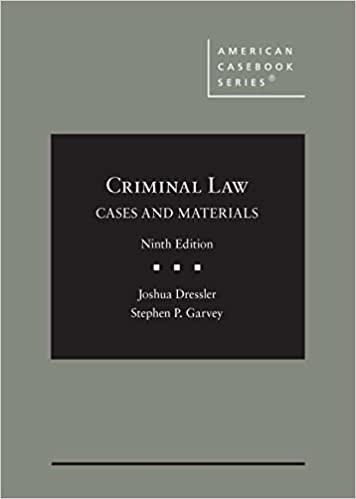Question
This assessment addresses the following course objective(s): Interpret Common Law, reasoning and the doctrine of Judicial Precedent Explain the different rules of Statutory Interpretation Describe
This assessment addresses the following course objective(s): Interpret Common Law, reasoning and the doctrine of Judicial Precedent Explain the different rules of Statutory Interpretation Describe the structure and functions of the Commonwealth Caribbean Court System
Scenario: On the afternoon of October 30th, Robert Bloom from Bloom's Waste Management went on a work site and collected a truckload of contaminated soil from excavations at a building site in Arima. Robert drove the full truck back to his company's yard in Port of Spain late that evening and left the truck parked there overnight. His intention was to drive the truck to a remote site the next morning. Peter Smith, a municipal inspector saw the truck in the yard and upon inspection discovered that the soil in the truck was contaminated by toxic waste. Mr. Smith contacted Robert and informed him he was in violation of Section 3 of the Contamination Avoidance Act which forbids him from storing such near a river or riverbed without a special permit. Robert admits that the soil is contaminated and told Mr. Smith he cannot produce a permit. The Coroni River is three kilometres from the Bloom's Waste Management company's yard. The inspector makes a report to the Police, who charged Robert with a breach of Section 3 of the Contamination Avoidance Act which states: A person shall not store or permit the storage of toxic materials within five kilometers of a river or riverbed without first obtaining a permit from the Minister. The objective of the Act is to: (1) protect the water resources or Trinidad and Tobago; and (2) to prevent harm caused by the accidental spread of contaminants. Robert is given the option of admitting guilt and paying a fine of $1,000; otherwise, he will have to defend the charge in court. Robert asked for your advice. He admits the soil was left in the yard, but says it was only left there overnight and that he always intended to move it the next day. He says that, in these circumstances, he does not think he contravened the Act. Advise Robert as to whether he should pay the $1,000 fine or defend the charge in court. Instructions: As a group you will analyse the situation and inform Robert whether he was in contravention of Section 3 of the Contamination Avoidance Act. Your assignment should be submitted using the IRAC method of legal analysis. The group assignment should be supported with at least four legal sources.
Step by Step Solution
There are 3 Steps involved in it
Step: 1

Get Instant Access to Expert-Tailored Solutions
See step-by-step solutions with expert insights and AI powered tools for academic success
Step: 2

Step: 3

Ace Your Homework with AI
Get the answers you need in no time with our AI-driven, step-by-step assistance
Get Started


